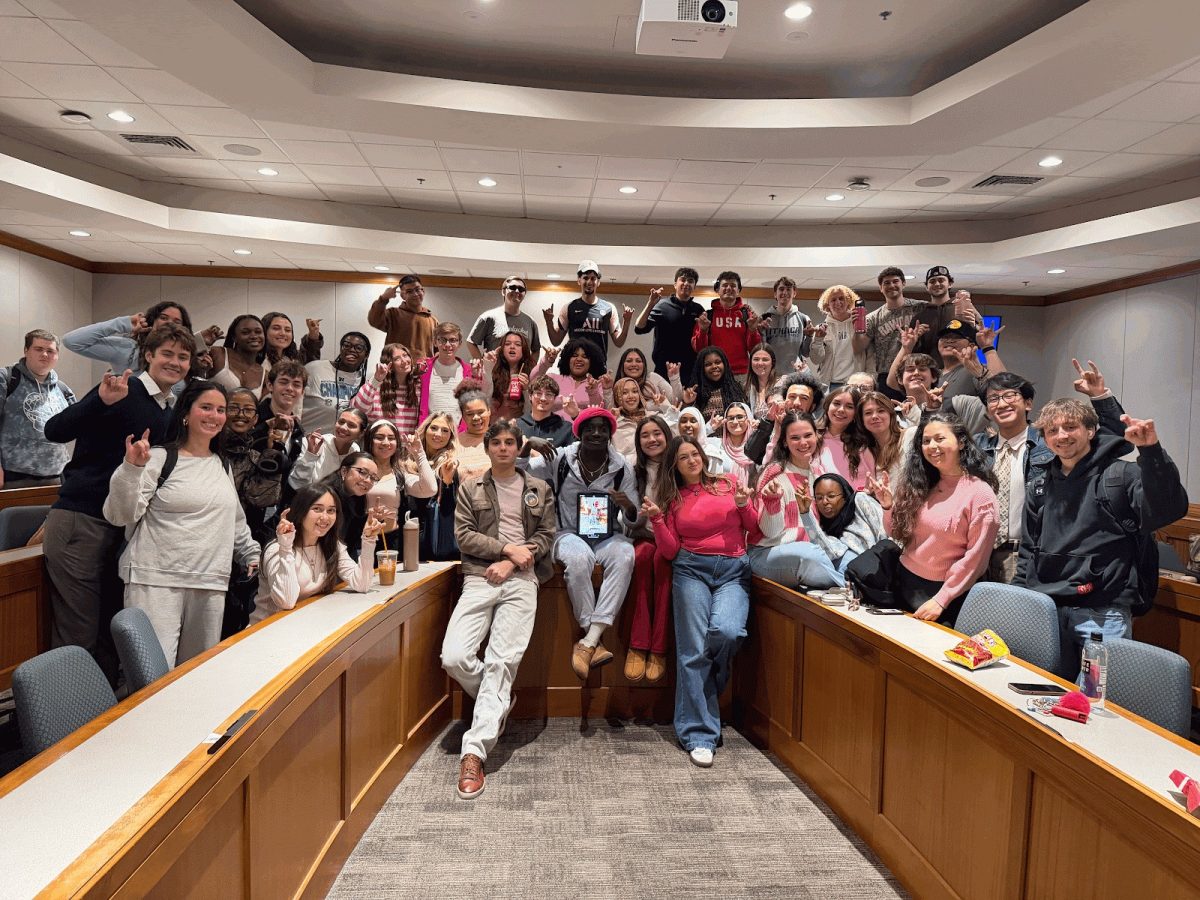Article by: Angela Bray
“It is becoming increasingly important to be educated in environmental issues…”
Amid the growing field of environmental studies at Suffolk, students have the option of studying to obtain an interdisciplinary major and minor. The program, which began in the fall of 2007, allows for the development of skills in areas of natural and social sciences, ethics, and the humanities.
Environmental studies is especially beneficial to students who are interested in the environment. It gives them a deeper understanding of the environment,” said Dr. John C. Berg, a Professor. Berg is also Chair of the Government Department. “The courses will prepare a student to be a good advocate, as well as be able to write and educate about the environment.”
Common interests of students studying the environment include pollution affecting individual health or the ecosystem, as well as environmental policy, justice, and communication. Environmental ethics, economics, and politics are popular requisite course options.
“There are a lot of course opportunities,” said Dr. Martha E. Richmond, Director and Professor of the Environmental Studies Program. “[The program] is very self-structured, and there is a lot the students can do.” The program focuses accommodate those with focuses in environmental policy, economics, and law, ethics and sociology, journalism and creative writing, and the sciences. “What I would like to see in the next few years is students taking the opportunity to learn environmental journalism and creative writing,” said Richmond.
The environmental studies program is also good preparation for careers in various environmental work, as the whole environmental field is growing. “The program will help students who want to work as environmental lobbyists and educators, in environmental politics or science, and in national parks,” said Berg. Along with the coursework, students are expected to complete a practicum or internship, and Richmond said she constantly hears about available internships. There is also an opportunity for students to, locally or nationally, work with governmental or non-profit agencies. International programs are also an option.
“I think a lot of people are becoming more interested in environmental issues,” said Richmond. According to Berg, the environmental studies program is “pretty popular, but not huge yet.”
Derek Stehlin, a Freshman at Suffolk, is an environmental engineering major. “I hope to greenify the dorm,” he said. Stehlin is also one of Suffolk’s five Eco-Reps. The reps are students who live in the university’s residence halls and act as environmental peer educators; they lead events and encourage environmentally responsible living.
“It is becoming increasingly important to be educated in environmental issues and topics as sustainability and going ‘green’ continues to become more mainstream,”said Kevin Jordan, a Senior and Environmental Science major. “The better we are educated on how our decisions and lifestyles effect the environment, the economy, and our health, the better off we are.”













